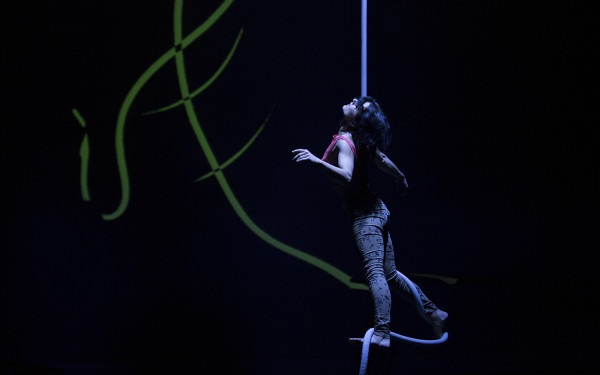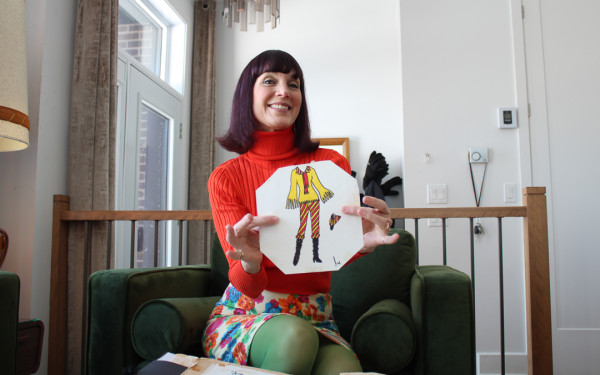Tears of a Clown
Clown School to Showcases Latest Crop of Performers
They are gymnasts and they are theatre performers, and after hundreds of hours of training, they’ll have earned their red noses.
If you think being a professional clown is all fun and games, go spend a day at Francine Côté’s Clown and Comedy School and you will never see it the same way again.
“We offer an intensive à la carte program which consists of different workshops lasting approximately 30 hours each,” explained Geneviève St-Denis, pedagogical coordinator and the school’s beginner clown teacher.
“This program takes from two to three years to complete, but we now also offer a full-time program which lasts approximately a year.”
With the end of training comes a year-end show. From March 29 to March 31, the Clown and Comedy School will present its final showcase at Théâtre au Cube.
The cast is composed of 11 professional artists, some from the Cirque du Soleil, some from Dr. Clown, and professional dancers who have successfully completed their 600 hours of training.
The artists have been rehearsing and meeting with professors for a year to prepare their eight-minute acts with the help of Côté. These clowns are contemporary performers that still work with the traditional red nose, as there are certain traditions that the school wishes to keep.
The school offers training programs for professionally trained clowns who may want or are required to improve their technique; both of the programs it provides consist of almost 600 hours of training in bodily disciplines such as physical theatre, buffoonery, gymnastic and, most importantly–clown art.
“Being a clown comes from within, […] It is not a character that you create but some part of your own personality that you express.” – Geneviève St-Denis
Though the school trains over 200 students per year, members of the general public who want to give clowning a try can take part in the bi-annual workshops the school puts on.
Côté, the owner and founder, has been the artistic director of Dr Clown, a company that specializes in therapeutic clown art -a style she developed – and works in hospitals to cheer up the ill and elderly.
In order to be allowed to audition for Dr. Clown, artists have to follow training workshops at Côté’s school.
Considering that those who receive training at the school are already professional clowns, the age of those taking part in the full time program varies between approximately 25 and 30 years old, but the general clientele at the school is more between 25 and 50 years old.
Clown art is still unbeknownst to most people, but St-Denis said she has seen an increase in people’s interest in the past few years.
“With the Cirque du Soleil and the Cirque Eloise, I think more and more people are starting to develop an interest for that kind of art,” said St-Denis. “In Quebec we often have artists from Europe performing, while our artists here leave to perform in Europe. It takes a while before our local artists actually get integrated in the local scene.”
However, St-Denis thinks that most people still often confuse clowns with comedians, something that she says, is completely different.
“Being a clown comes from within,” she says. “It is not a character that you create but some part of your own personality that you express.”
Clown / March 29 to March 31 / 8:00 p.m./Théâtre au Cube (4852 de Lorimier St., in the church basement) / Tickets $15.00 / For more info, call 514-815-3269 or visit formation clown

_900_568_90.jpg)
_600_832_s.png)




